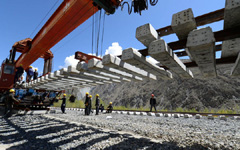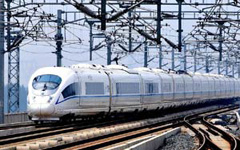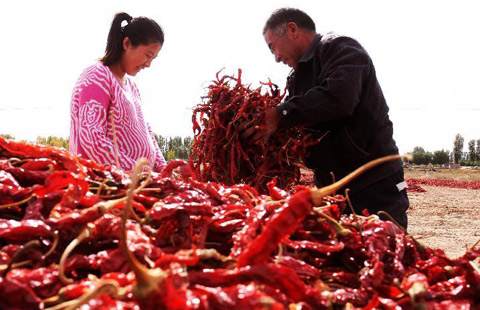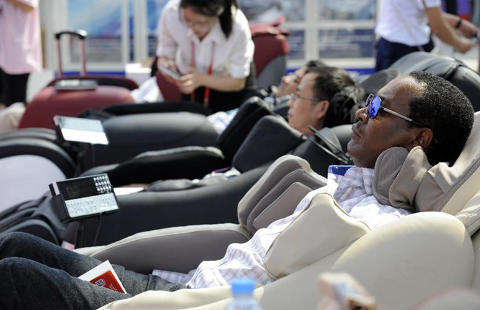New rail projects to boost growth
By Lan Lan (China Daily) Updated: 2014-10-17 10:10China's top economic planner on Thursday announced the approval of three new rail projects as part of the ongoing drive to rejuvenate the economy.
The National Development and Reform Commission said it approved two rail projects in Yunnan province. One is a line costing 44.5 billion yuan ($7.24 million) linking Yuxi and Mohan and another, costing 25.7 billion yuan, will run between Dali and Ruili.
|
 |
| China steps up railway construction |
|
 |
| China riding railway hopes |
Another 25.6 billion yuan will be spent to expand rail capacity in northern China, linking Jinzhou port in Liaoning province and Baiyinhua, Inner Mongolia, the regulator said on its website on Thursday.
Experts said the announcement shows the NDRC is using the existing budget on projects that will bolster the economy, but added investment beyond budget is unlikely.
Rail projects in central and western China, along with urban renovation and water conservation projects, are crucial in boosting investment growth, NDRC representative Li Pumin said.
Fixed-asset investment climbed 16.5 percent in the first eight months, less than the 20.3 percent recorded in the same period last year, according to the National Bureau of Statistics.
"The declining pace of investment growth is expected to shift in the coming months," said Li at a news conference earlier this week.
The government aims to make investment play a critical role in supporting growth, he said.
This year's central budget for investment is 457.6 billion yuan, about 20 billion yuan higher than last year.
Spending under the central budget will focus on areas where the market cannot play an efficient role, such as agriculture, infrastructure construction, public services, energy conservation and environmental protection.
China raised its investment budget for water projects by 7 percent to 76.7 billion yuan in 2014. The country plans to start construction on 172 major water projects by 2020. Total investment on projects currently being built could amount to about 600 billion yuan.
Yang Ping, a researcher with the Academy of Macroeconomic Research under the NDRC, said that the new projects are "within budget" and extra investment beyond that is unlikely.
But the government will spend allocated funds faster to help support the economy, said Yang.
China's economic volatility in recent months has spurred some financial institutions to slash their forecasts for growth.
Premier Li Keqiang said during his recent visit to Germany that China can achieve economic growth of around 7.5 percent this year.
- Shell launches new payment facility
- China, Thailand pledge closer cooperation in agriculture, infrastructure
- Mongolian PM hails development of relations with China
- China, Greece vow to enhance cooperation
- China's weak power use points to subdued economic activity
- Internet giants' brawl ends with Qihoo 360's loss
- Bain to buy 80% stake in leasing firm Lionbridge
- Alibaba launches financial service arm
















